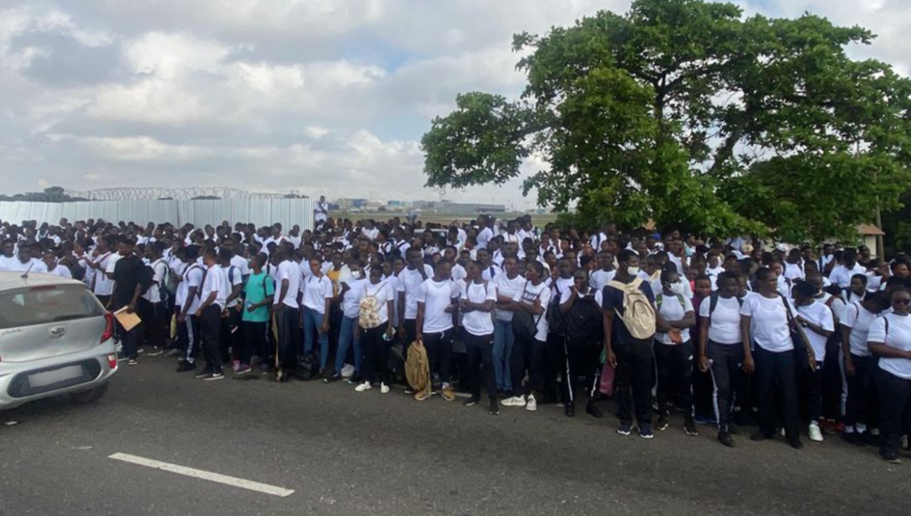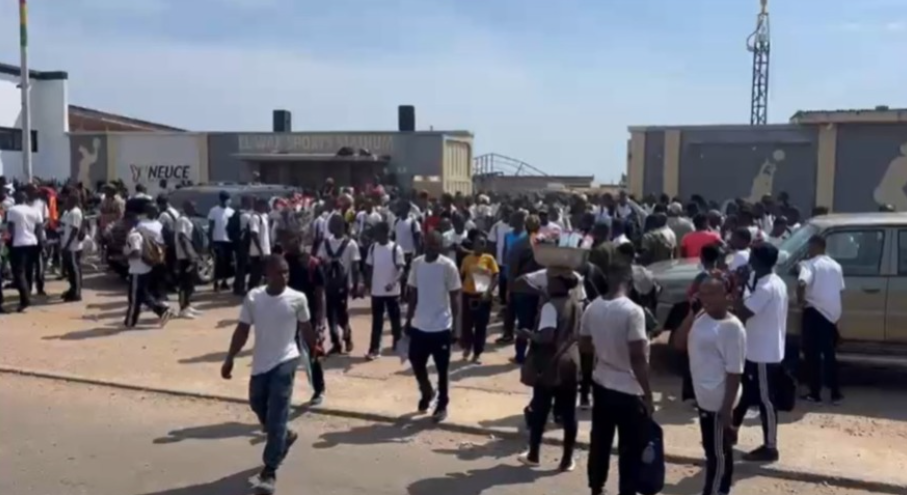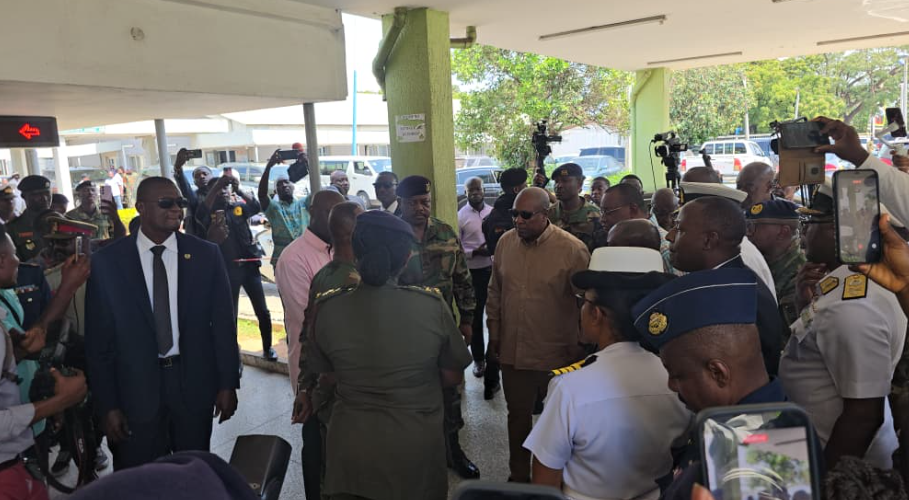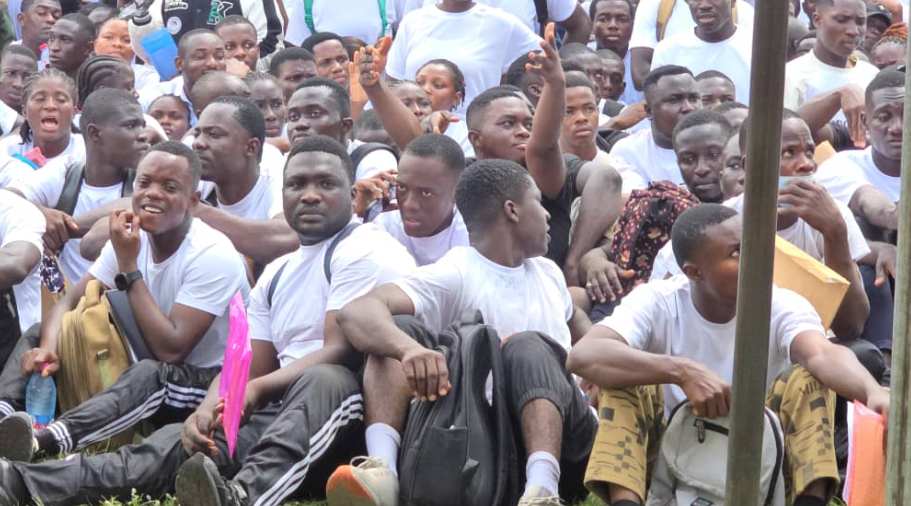The government has announced that one person from the family of each of the girls who died during the stampede in the military recruitment exercise on Wednesday at El‑Wak Stadium will be recruited into the army.
Their families are expected to present a replacement for the deceased to be absorbed into the military, Deputy Minister for Defence Brogya Gemfi said during a visit to one of the bereaved families at Eyan Maim in the Central Region on Friday, November 14.
“Due to what happened, the recruitment in Accra has been suspended by the President, so that we will ensure that measures are put in place to avoid a repeat of such incidents,” he said.
“The President has sent us to inform you that the State will stand with the families in the burial and funeral arrangements for the families. The President has also asked us to inform you that all those who wanted to wear the military uniform but died in the process, their families should present a replacement for those people to be absorbed into the military.
“So, the authorities representing the government in the region will engage you in that regard for the family to decide on who can be enrolled into the military,” he added.
Background
Family members of the victims are yet to be officially informed as authorities work to confirm the identities of the deceased. The Ghana Armed Forces has since suspended the ongoing nationwide recruitment exercise to allow for investigations into the incident.
What began as a hopeful opportunity for thousands of young Ghanaians aspiring to serve their country in the military quickly turned into a nightmare.
As early as 6 a.m., soldiers on duty struggled to control the overwhelming crowd that had thronged the El Wak Sports Stadium. Over two thousand applicants reportedly formed long queues stretching from the 37 Military Hospital bus stop to the stadium gates, resulting in massive traffic congestion in the area.
 GAF recruitment exercise
GAF recruitment exercise
Eyewitnesses say the crowd kept swelling by the minute as more applicants arrived. When the gates were eventually opened for screening to begin, chaos erupted as eager candidates rushed in, leading to a stampede.
At least six people were confirmed dead at the scene, while several others sustained varying degrees of injury and were rushed to the 37 Military Hospital for treatment.
Authorities later announced that applicants who were unable to take part in the screening should return on Thursday, November 13, 14, and 15, depending on their recruitment category.
 The applicants leaving the El-Wak Sports Stadium
The applicants leaving the El-Wak Sports Stadium
However, some applicants who spoke to TV3 expressed frustration and fear, insisting they did not trust the system and were unwilling to leave the stadium.
“We don’t trust the process. If we go home, we might miss our chance,” one applicant said.
Military personnel on duty reportedly used what they described as “minimum force” to disperse the crowd but struggled to restore order as more people kept arriving at the venue.
Later in the day, President John Mahama, accompanied by ministers of state and members of the military high command including the Chief of Defence Staff (CDS) and service chiefs visited the 37 Military Hospital to console victims and their families.
 President Mahama at 37 Military Hospital
President Mahama at 37 Military Hospital
Briefing the media, the Commander of the 37 Military Hospital, Brigadier General Evelyn Abraham-Kwabiah, dismissed circulating reports that 12 people had died.
“We can confirm that six people lost their lives, not twelve as being reported,” she clarified.
The Ghana Armed Forces have temporarily halted the recruitment process while investigations continue into what caused the deadly stampede.
 GAF recruitment- applicants
GAF recruitment- applicants
Despite the suspension, hundreds of hopeful applicants are still camping around the El Wak Sports Stadium, anxious not to miss any updates about the next round of screening.
The tragedy has sparked renewed debate about crowd control and safety during public recruitment exercises in Ghana, with many calling for better planning and coordination to prevent future occurrences.
The Ghana Armed Forces recruitment exercise is one of the most competitive in the country, attracting tens of thousands of applicants each year. Many young people see it as a gateway to stable employment and national service, but logistical and communication challenges often lead to confusion and overcrowding during the screening stages.
Authorities have promised to review safety protocols before resuming the exercise.


